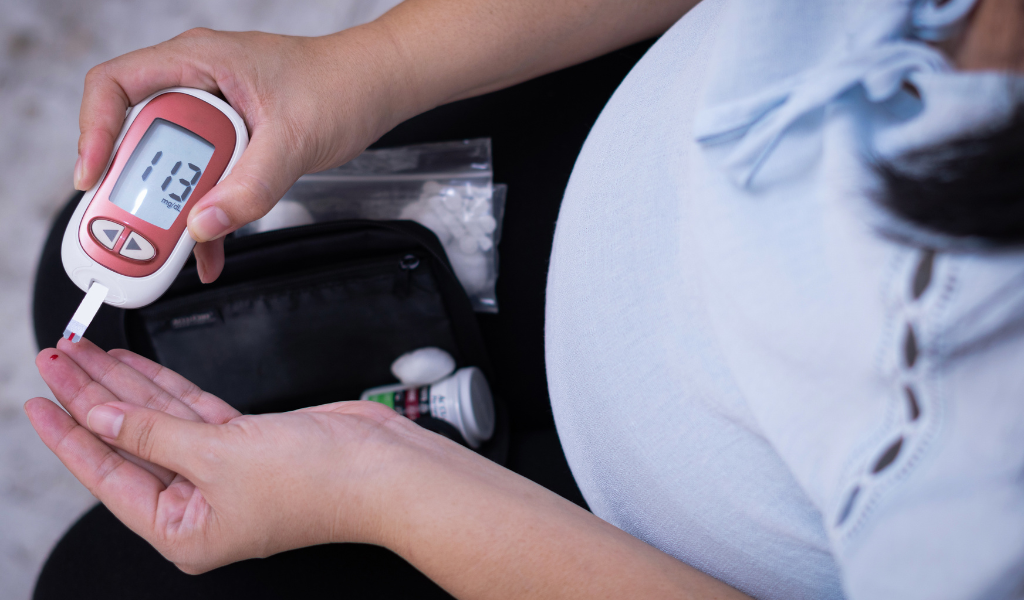It’s no news that cardiovascular diseases are the leading cause of death around the world. To add on top of that, a person who suffers from diabetes or shows diabetes symptoms is more prone to suffer from heart failure in the long run. While it is tricky to deal with diabetes in itself, it also happens to be one of the major causes of heart failure.
Before we jump into the nitty gritties of how diabetes instigates heart failure, let’s touch upon the symptoms & types of diabetes, to know better about the disease.

Types of diabetes and its symptoms
Diabetes is caused by your blood sugar levels being high. The reason why diabetes occurs is either the pancreas makes little to no insulin, or your body is not responding to the effects of insulin properly. Although all forms of diabetes are chronic, the disease and its symptoms are largely manageable with lifestyle changes & medications.
The 4 major types of diabetes are –
- Type 2 diabetes: Known as one of the most common types of diabetes, Type 2 diabetes usually affects adults and occurs when your body is not making enough insulin or it is not responding to the insulin properly.
- Type 1 diabetes: An autoimmune disease, Type 1 diabetes occurs when your immune system destroys insulin-producing cells in the pancreas for reasons that still baffle the medical community. Although it can develop at any age, Type 1 diabetes can usually be diagnosed in children and adults.
- Prediabetes: As the name suggests, this type usually occurs before the onset of Type 2 diabetes. The glucose levels in your blood are higher than usual but not high enough to be diagnosed with Type 2 diabetes.
- Gestational diabetes: This type of diabetes usually develops during pregnancy. Although it may resolve on its own after pregnancy, once you have gestational diabetes, you are at a higher chance of developing Type 2 diabetes as well.

Whether you have type 1 or type 2 diabetes, it is important to understand diabetes symptoms one experiences to seek medical treatment accordingly. These are-
- Dry mouth or polydipsia (the urge to drink water again and again)
- Frequent urination
- Unexplainable fatigue and tiredness
- Unexplainable weight loss
- Numbness/tingling sensation in tips of hands or feet
- Delay in healing process of cuts and wounds
- Recurring skin infections
How diabetes symptoms can cause heart failure
What links heart failure to diabetes is high blood sugar levels. Once your body is exposed to elevated blood sugar levels over a period of time, it leads to arterial damage. The arteries tend to stiffen and harden due to excess glucose present in the blood. It also leads to plaque build-up, causing blockage in the arteries. Since people with diabetes also have elevated cholesterol levels, the chances of blockage occuring are at an all-time high.
Now when plaque build-up damages the arteries, the body sends white blood cells to repair the damage. Since the arteries are already pretty narrow due to the build-up, the additional WBCs create more pressure on them. This can lead to arterial rupture.
Conclusion
Whilelifestyle changes have a huge impact on diabetes, reducing cholesterol levels is also something a diabetic person should reduce. Speaking of low cholesterol, TrueBasics Heart Omega-3 comes with Antarctic krill oil. Antarctic krill helps reduce cholesterol and triglyceride levels by up to 33%. The 4 heart-strengthening ingredients also play a huge role in keeping your heart healthy. Omega-3 fatty acids, Phospholipids, Astaxanthin and Choline together work towards keeping your heart younger, as you get older.

Frequently asked questions about diabetes & heart issues
Can diabetes cause heart problems?
Yes, diabetes can cause a host of different heart issues, coronary artery disease (CAD) being the most common out of them.
What kind of heart problems can a diabetic have?
A person with diabetes can be more prone to heart attack, hypertension, CAD, or heart stroke.
Why do diabetics have silent heart attacks?
The reason why diabetics have silent heart attacks is because of nerve damage. More glucose in the blood damages the nerves, because of which heart attack can go undetected sometimes.
Does type 2 diabetes affect heart rate?
Yes, type 2 diabetes can elevate heart rate in the form of hyperinsulinemia.








